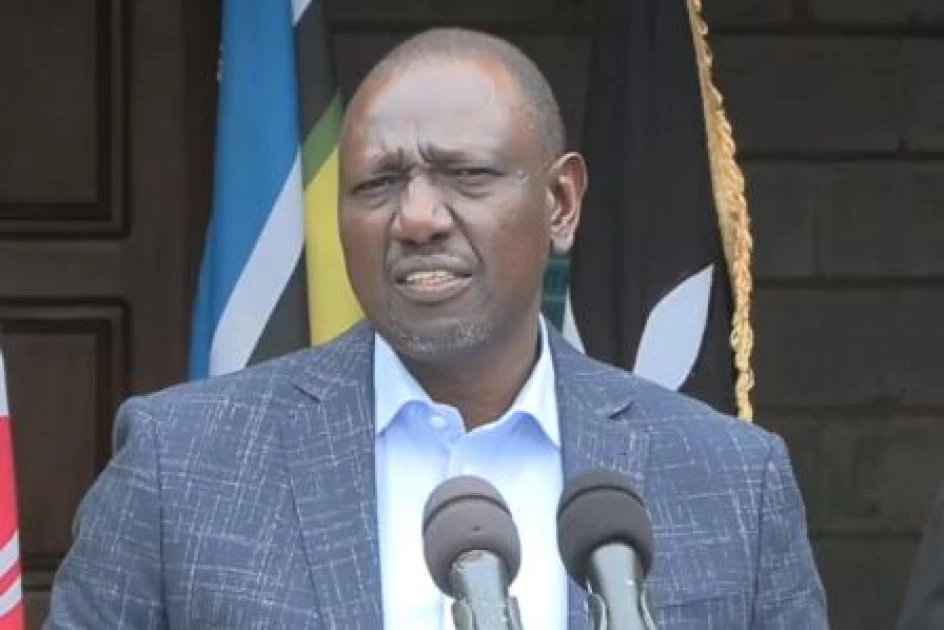The Government is committed to address various issues facing the Agricultural labour industry, particularly in plantation fields, greenhouses and factories which predisposes workers to suffer injury and occupational hazards.
The Cabinet Secretary for Labour and Social Protection (CS), Ms. Florence Bore urged the Agricultural Employers Association (AEA) to work with the Government in identifying and mitigating hazards to reduce the risks or accidents and injuries which will lead to efficiency and improved productivity, improved employee relations and morale, and therefore reducing costs associated with insurance, accidents or injuries.
She also noted with concern that mental illness has also become rampant at workplace afflicting workers today, due to the difficult circumstances of life.
The CS said to mitigate against these emerging issues in the agricultural sector, her Ministry has taken steps to empower workers through training of safety committees, inspection and enforcement of standards to protect workers.
CS Bore further revealed that to this end, the Government had initiated the process towards the establishment of a Work Injury Social Insurance Scheme to provide for the compensation of workers and their families in the unfortunate event of disability or death arising out of and in the course of employment.
She was speaking during the 60th Agricultural Employers’ (AEA) Annual Conference held in Naivasha on Thursday. The theme for this year`s conference was; “Fortifying productivity- innovate, Reinvent, embrace”.
Bore also promised to operationalize and strengthen the two Wages Councils specific to the agriculture sector, that is, the Agricultural Wages Council and the Floriculture Wages Council which have not been operational due to various reasons, thus denying the Government the necessary advisory on issues of terms and conditions of employment as well as salaries and remuneration.
She observed that it was important that the two bodies and other labour boards are made operational and strengthened to enable her ministry to effectively manage labour and employment sector.
“It will also lead to fewer labour disputes and industrial action,” Bore said.
The CS stated that with the collaboration of the Social Partners, her Ministry has a draft Wages and Remuneration Policy for Kenya and it will soon be presented to cabinet for consideration and possible adoption.
She reiterated that agriculture sector is the biggest employer in the country, employing over 70 per cent of the country`s workforce and it is for this reason that the Government continues to put in place measures to ensure that the growth and development of these sectors is sustainable, socially responsible and creates decent work opportunities.
Bore noted that the status of industrial relations in the country in the last four years has remained stable and calm as opposed to others and applauded the Agricultural Employers’ Association for playing a pivotal role in ensuring that the sector is attended to appropriately.
She also commended the AEA leadership for being understanding and humane during the height of the Covid-19 pandemic in 2020 to 2021.
“Despite the hardship occasioned to businesses by the pandemic, many employers under the Association did not lay off workers and instead negotiated flexible working terms and conditions which helped secure jobs and sustain the employment relationship,” The CS said.
Bore encouraged AEA to work with her Ministry through the National Productivity and Competitiveness Centre (NPCC) which has products to support employers in building a productivity work culture.
“Through the Centre you can benefit from productivity improvement activities which are tailor made for both Public and Private sector organizations and companies. Productivity improvement programmes will enable enterprises to minimize losses, address quality and safety issues and capacity underutilization all geared towards improving competitiveness,” she observed.
She reminded the agricultural employers that the labour market in Kenya has witnessed a tremendous transformational change, driven by various factors in the recent years, forward the much talked about Future of Work, thus changing the organization of work, employment relationships and production of goods and services.
“This calls for a review of existing framework for labour relations to make it more responsive to the emerging realities in the world of work. As a Ministry we are committed to addressing the implications of the changes on employers and workers,” Bore remarked.
She added that there is need to organize broad national and sectoral dialogues on this issue, engaging the Tripartite- drawing participation of government, workers and employers, and which should involve academia and communities.

